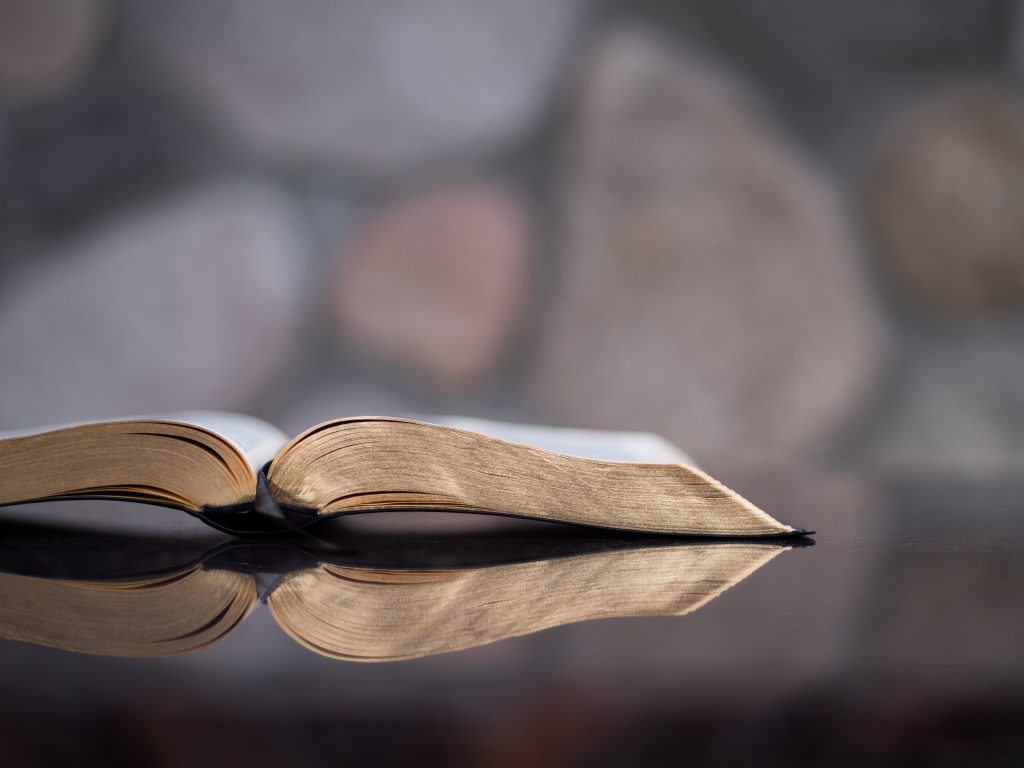
Photo by Aaron Burden on Unsplash

Jaweed Kaleem, National Reporter, Los Angeles Times
In her years as a religion reporter, Cathy Grossman has traveled from Texas to Vatican City and covered nearly every religious group imaginable. But amid her thousands of interviews, she’s had a strict policy of never revealing her own faith. In fact, she’s gone lengths to hide it from sources, even avoiding putting photos of her Jewish holiday observations on her personal Facebook account — lest a source find them.
Talking about her own religion is “a poor practice and one that I do not follow,” said Grossman, a freelance writer who most recently spent close to three years at Religion News Service and was the religion reporter at USA Today from 1999 to 2013. “Any answer I might give will influence how the source replies to me. And it will waste our time while potentially distorting the reporting.”
It’s the kind of view that was likely once dominant. That’s when interviews were more often one-way streets, journalists lacked social media accounts, and their faces and backgrounds were largely unknown to the public if they weren’t household names. Today, as reporters become more diverse — by race, religion and more — and notions of objectivity become increasingly debated, some journalists on the religion beat are choosing to be more open about their own faiths and lack thereof.
The Society of Professional Journalists Code of Ethics says journalists should be “accountable and transparent.” It defines that as “taking responsibility for one’s work and explaining one’s decisions to the public.” Part of accuracy, it says, is fairly making corrections. Another part is to “encourage a civil dialogue with the public about journalistic practices, coverage and news content.”
When it comes to covering religion, does the concept of transparency apply in the same way?
“I don’t see it as a matter of ethics — a matter of moral right and wrong,” Grossman said. “I don’t think reporters who choose to share this about themselves on the job are unethical.” To her, instead, it’s simply not a useful move.
“If you are writing for readers, you aren’t the story. If you want to be the story, get a column or go write in your diary,” Grossman said.
While that perspective is far from uncommon, views are changing, said Eileen DeLaO, a former religion reporter for the Austin American-Statesman and adjunct religion journalism professor at the University of Texas at Austin.
“I tend to lean toward a more old-school approach on revealing your religion but I recognize this is a very gray area,” said DeLaO, who has taught at the university since 2007 and was a religion reporter and columnist at the newspaper for 11 years. DeLaO compared her experience covering religion — in which she often wrote about evangelicals in Texas — to her time reporting on politics in Boston before she moved south.
“In the state legislature, nobody ever ever asked me who I voted for … they did not want to know my personal take on whatever bill was being proposed. Nobody cared about my opinion.”
But her religion reporting students, she said, by and large hold a different perspective.
“A lot of students have to be untrained from the ‘me-me-me’ interactions with social media, the ‘I’ statements and everything directed inward about the individual self,” DeLaO said. “I know I am an old fuddy-duddy to say this, but I wish they would not share so much.”
On religion, she’s come to a compromise in her teaching. DeLaO tells students that there are “situational ethics” in religion interviews.
“If you interview the bishop of your local Catholic diocese about the sex abuse scandal, you don’t need to share anything personal,” she said. “That is a hard news story. You are there to get facts.”
“If you go to talk to a victim of sex abuse and you are trying to create trust, if you are completely shut off and not willing to share anything about yourself, that can also hurt the reporting process.”
Sometimes, she noted, the question about a reporter’s religion is simply a way for the source to ascertain how much they need to explain about the basics of their faith. As someone who grew up Catholic, sharing that fact has helped her establish a baseline of knowledge in interviews to skip ahead to deeper questions.
But not everyone has a choice to not reveal their religion, DeLaO noted.
That includes people who wear visible signs of the faith or whose names correspond closely to specific religious traditions.
Asma Khalid, a politics reporter for National Public Radio, falls into this group. A Muslim, she nearly always wears a hijab.
“It is very hard for me to avoid specifying my religion in the way that many of my friends who don’t wear scarves can avoid,” said Khalid, whose beat isn’t religion but whose reporting frequently hit on the topic as she covered President Trump’s campaign in 2016. “It’s something that elicits very strong opinions from people, Muslim and non-Muslim.”
Questions about religion — such as her views on terrorism committed by Muslims and women’s rights in Islam — have come up several times while reporting. In one recent instance during the 2018 midterm elections, Khalid was interviewing a prominent Republican volunteer in the Youngstown, Ohio, area who told her to “‘take off that scarf, I don’t like that scarf’” after making clear that she did not “care for Muslims,” Khalid said. (The comment about the scarf, Khalid said, is a paraphrase and did not make it into her story).
Khalid decided in that moment that interrupting her interview subject wouldn’t be useful even though she found the comments to be inaccurate and based on anti-Muslim stereotypes. “I am hesitant to jump in with follow-up questions when I am doing voter interviews,” she explained, saying she prefers to let subjects speak extensively before returning. She also wanted to give the source time to clarify her views through more discussion.
“We talked for a few hours. I didn’t let the whole interview go on, but she did speak for a little. Then I did come back to the topic. I said, ‘I want to ask you about something you mentioned,” Khalid said. “Normally, back in 2015, I wouldn’t have asked why she said she didn’t care for Muslims.” But Khalid’s faith was a primary topic of the 2016 Trump campaign, in which the president vowed to ban Muslims from immigrating to the U.S. and once said in a CNN interview that “I think Islam hates us,” among other negative remarks about the religion and Muslims since his campaign. As a result, Khalid has become more open to asking and answering questions about it while on the road.
She isn’t the only reporter who has little or no choice in revealing her faith when reporting.
At Christianity Today, a publication founded by the Rev. Billy Graham, all staffers must be Christians and adhere to a statement of faith. Freelancers are not required to follow that rule. The magazine and website cover a wide array of news in Protestant Christianity, but they are known for reporting on the Southern Baptist Church, evangelicals, and Christian movements in Africa and Asia.
Even if it’s assumed that he’s Christian, that doesn’t mean his religion is always relevant to reporting, said Deputy Managing Editor Jeremy Weber.
“I don’t view the journalist’s religion background to be any different than other personal attributes,” Weber, who is Anglican, said. “There are times that it’s strategic to disclose about yourself to build rapport with a source, but when a person reads a final story, it should not be obvious to them what your religion is.”
Weber compared specifying one’s spiritual practice to conveying other personal attributes.
“I would say it’s similar to sharing if you are married or have kids — if your source does — or what college you went to if (the source) went to the same one,” Weber said. “It can be a way of getting a returned call, establishing trust.”
